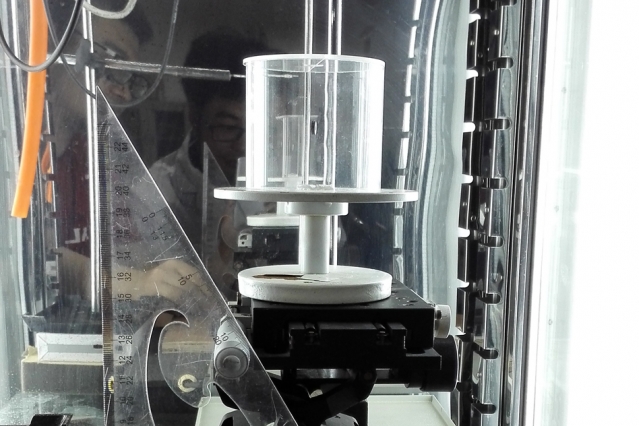
Researchers at MIT discovered an unusual property of spider silk that could make it a useful material in the development of artificial, robotic muscle.
Spider silk, one of strongest materials for its weight, responds very strongly to changes in humidity and exhibits humidity-induced torsional behavior, according to a study published in the journal Science Advances (citation below).
The team found that spider silk begins to suddenly contract and twist when the environment it is in reaches a certain level of relative humidity. This reaction exerts a force strong enough to potentially make spider silk competitive with other materials being explored as actuators – devices that move to perform some activity, like controlling a valve.
The behavior of humidity-induced twist is related to the supercontraction behavior of spider silk. It was already understood that spider silk contracts in response to changes in moisture, however, the strong torsional force it exerts “is a new phenomenon,” said Markus Buehler, head of the Department of Civil and Environmental Engineering.
Dabiao Liu, an associate professor at Huazhong University of Science and Technology in Wuhan, China, said: “We found this by accident initially. My colleagues and I wanted to study the influence of humidity on spider dragline silk.”
A weight was suspended from a silk strand enclosed within a chamber. The scientists could control the humidity level inside the chamber. When the humidity in the chamber increased, the weight started to rotate.
“When we increased the humidity, the pendulum started to rotate. It was out of our expectation. It really shocked me,” said Liu.
Other materials, such as human hair, were also tested, but didn’t exhibit any twisting motions.
“This could be very interesting for the robotics community,” Buehler said. “It’s very precise in how you can control these motions by controlling the humidity.”
Pupa Gilbert, a professor of physics, chemistry, and materials science at the University of Wisconsin at Madison, who was not involved in the study, was quoted by MIT News as saying:
“This is a fantastic discovery because the torsion measured in spider dragline silk is huge, a full circle every millimeter or so of length.”
Gilbert added: “This is like a rope that twists and untwists itself depending on air humidity. The molecular mechanism leading to this outstanding performance can be harnessed to build humidity-driven soft robots or smart fabrics.”
The researchers say the finding could eventually lead to the development of humidity-driven soft robots, smart textiles, novel sensors, or green energy production devices.
Citation
